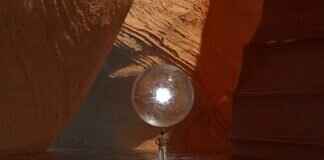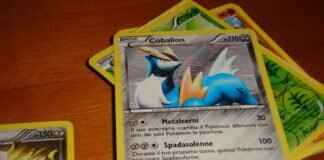Are you curious about the unique properties of Mylar tape and whether it is conductive? If so, you’re not alone! Many people wonder, “Is Mylar tape conductive?” and how it can be used in different applications. Mylar tape, known for its durability and versatility, is often used in various industries, including electronics and crafts. However, its conductive abilities can be confusing. Did you know that Mylar itself is not inherently conductive? This fascinating material has properties that can be manipulated for specific uses. For instance, when coated or layered in certain ways, it can exhibit conductive characteristics. This opens up a world of possibilities for DIY enthusiasts and professionals alike. Exploring the question, “Is Mylar tape conductive?” leads to an understanding of its applications in insulation, shielding, and even in creating unique electronic projects. So, if you’re looking to discover more about Mylar tape and its unique properties, you’re in the right place! Let’s dive deeper into the world of Mylar and uncover the secrets of its conductivity and other remarkable features.
Unveiling the Truth: Is Mylar Tape Conductive or Just a Myth?
The debate around Mylar tape’s conductivity has puzzled many for years. Often used in various applications, from insulation to crafts, people frequently wonder if this shiny material is conductive, or if it’s just a myth floating around. So, let’s dive into this topic and discover the truth about Mylar tape’s properties.
What is Mylar Tape Anyway?
Mylar tape is a polyester film that is known for its durability and versatility. It was first developed in the 1950s. This tape can resist moisture, chemicals, and UV rays, making it a popular choice in different industries.
- Key Properties of Mylar Tape:
- Durability: Strong and resistant to wear and tear.
- Moisture Resistance: Doesn’t absorb water easily.
- Chemical Resistance: Stands up against many harsh substances.
- UV Stability: Doesn’t degrade quickly when exposed to sunlight.
The Conductivity Question
So, is Mylar tape conductive? The simple answer is no, Mylar tape is not conductive in the way metals are. However, there are some nuances involved. Mylar itself is an insulator, which means it does not conduct electricity. But, it can be treated or coated in ways that may allow for some level of conductivity.
- Mylar Tape vs. Conductive Materials:
- Mylar Tape: Non-conductive, excellent insulator.
- Copper Tape: Highly conductive, used in electronics.
- Aluminum Foil: Also conductive, but less durable than Mylar.
How is Mylar Tape Used?
Given its properties, Mylar tape finds application in various fields. Here’s a list of some of the common uses:
- Crafts and DIY Projects: Making decorations, scrapbooking, and more.
- Insulation: Used in electronics to insulate wires and other components.
- Reflective Surfaces: Often used in thermal insulation to reflect heat.
- Packaging: Protects food from moisture and air.
Conductive vs. Non-Conductive Mylar
There’s a fine line between conductive and non-conductive Mylar. Some manufacturers produce versions of Mylar that have conductive coatings, which can be used in specific applications. Below are some points to consider:
-
Conductive Mylar Tape:
- Made by adding conductive materials like silver or carbon.
- Used in electronic applications for grounding or shielding.
-
Non-Conductive Mylar Tape:
- Commonly available and used for insulation purposes.
- Safe for general crafting and packaging without electrical applications.
Real-World Applications
Understanding the properties of Mylar tape can help in real-world scenarios. Here’s how different industries utilize Mylar:
-
In Electronics:
- Mylar tape used to insulate wires and prevent short circuits.
- Conductive Mylar can ground components or shield against interference.
-
In Agriculture:
- Reflective Mylar utilized in greenhouses to maximize light exposure.
-
In Arts and Crafts:
- Popular among artists for its shiny finish and versatility.
The Final Word
So, when it comes to Mylar tape, it’s clear that it’s primarily non-conductive. While there are variations that can be made conductive, the standard Mylar tape you encounter in stores usually does not conduct electricity. This information is crucial for anyone working on projects that involve electrical components. Choosing the right type of tape can mean the difference between a successful project and a potential disaster.
Whether you’re a DIY enthusiast, an artist, or a professional, knowing whether Mylar tape conductive or not can guide your choices in materials. Always double-check specifications if you’re uncertain about the type of Mylar you’re using. The world of materials can be complex, but with a little research, you can make informed decisions that suit your needs perfectly.
5 Surprising Applications of Mylar Tape in Electronics and Beyond
Mylar tape, a product that many people may not think about very often, is surprisingly versatile. It’s more than just a shiny surface; it holds unique properties that make it valuable in various applications. Not only is Mylar tape commonly used in electronics, but its uses extend to different fields too. Some might even wonder, “Is Mylar tape conductive?” Let’s dive into five unexpected applications of Mylar tape and explore its fascinating characteristics.
1. Insulation in Electrical Components
One of the primary uses of Mylar tape is in the electrical industry. The tape serves as an excellent insulator, protecting sensitive components from moisture and dust. Electrical engineers often uses it for wrapping around wires and connections. The tape can withstand high temperatures, which makes it perfect for high-voltage applications.
- High-temperature resistance: Mylar can endure temperatures ranging from -70°C to 150°C.
- Moisture barrier: Mylar tape effectively prevents moisture intrusion, prolonging the lifespan of electrical components.
2. Reflective Surface for Solar Panels
In the renewable energy sector, Mylar tape is often used to enhance the efficiency of solar panels. Its reflective properties allow for better light capture, which can significantly increase energy production. This reflective quality makes Mylar tape an excellent choice for solar energy applications, as it reflects sunlight back into the photovoltaic cells, maximizing their efficiency.
- Increased energy output: Mylar tape can improve solar panel efficiency by reflecting additional light.
- Durable: Resistant to UV radiation, ensuring longevity in outdoor environments.
3. Aerospace Applications
The aerospace industry has also found a place for Mylar tape. It’s used for insulation and protection against extreme temperatures in aircraft and spacecraft. The tape can be used to wrap around fuel lines and electrical cables, safeguarding them from environmental factors. Engineers appreciates its lightweight properties, which is critical when it comes to reducing the overall weight of an aircraft.
- Lightweight: Mylar tape adds minimal weight, crucial for flight efficiency.
- Thermal stability: Can withstand extreme temperatures encountered in space travel.
4. Crafting and Art Projects
Believe it or not, artists and crafters use Mylar tape for various creative projects. Its shiny surface adds a unique aesthetic touch, and its adhesive properties make it easy to work with. From scrapbooking to creating decorative items, the tape is favored for its versatility.
- Crafting uses: Ideal for scrapbooking, card making, and other DIY projects.
- Aesthetic appeal: The reflective surface can enhance visual elements in art.
5. Food Packaging
Food manufacturers uses Mylar tape as well. The tape forms a barrier against moisture and air, which helps keep food fresh. Mylar packaging is often used for snacks and other perishables. This tape is crucial for extending shelf life, as it prevents contamination and spoilage.
- Long shelf life: Mylar’s barrier properties help in preserving food quality.
- Non-toxic: Safe for food contact, making it ideal for packaging.
Is Mylar Tape Conductive?
Now, you might be asking, “Is Mylar tape conductive?” The short answer is no; Mylar tape is not conductive. Made from a polyester film, it is an excellent insulator. However, there are conductive varieties available that contain metallic or carbon additives, which are used in specific applications. Regular Mylar tape is used primarily for insulation and protection, while conductive Mylar tapes are utilized in applications like capacitors and sensors.
Unique Properties of Mylar Tape
Here’s a quick summary of the unique properties of Mylar tape:
- Chemical resistance: It resists degradation from chemicals, making it suitable for various environments.
- Flexibility: Mylar tape can be easily manipulated without breaking.
- Electrical insulation: As mentioned, it provides excellent insulation, essential for electrical applications.
In summary, Mylar tape is not just a simple adhesive product but a multi-faceted tool that finds applications across various fields. From enhancing the efficiency of solar panels to protecting electronics and even adding flair to craft projects, its uses are broad. And while it isn’t conductive, the versatility of Mylar tape in various sectors continues to surprise many. The next time you come across Mylar tape, remember its hidden potential!
How Mylar Tape Compares: Conductive vs. Non-Conductive Materials Explained
In the world of materials science, the use of Mylar tape has gained significant attention. Many people often wonder, “Is Mylar tape conductive?” This question leads us to explore the properties of Mylar tape, especially in terms of its conductive and non-conductive variants. Let’s dive into how Mylar tape compares and what makes it unique.
What is Mylar Tape?
Mylar tape is a polyester film that is frequently used for its versatility and durability. First introduced in the 1950s, Mylar is actually a brand name owned by DuPont, but it has become synonymous with similar products. Mylar tape is often used in electrical insulation, packaging, and even in the production of graphics. Its properties may vary based on the specific formulation and treatment it undergoes.
Conductive vs. Non-Conductive Mylar Tape
When it comes to Mylar tape, the distinction between conductive and non-conductive materials is crucial. Conductive Mylar tape contains metal particles or conductive carbon, while non-conductive Mylar tape is simply a thin polyester film without any added conductive materials.
Properties of Conductive Mylar Tape:
- Electrical Conductivity: Conductive Mylar can carry electrical current, making it suitable for applications in electronics.
- Shielding: It’s often used to shield sensitive electronic components from electromagnetic interference (EMI).
- Adhesive Backing: Many conductive Mylar tapes come with an adhesive backing, making them easy to apply on various surfaces.
Properties of Non-Conductive Mylar Tape:
- Insulation: Non-conductive Mylar tape serves as an excellent insulator, protecting components from electrical leakage.
- Temperature Resistance: It can withstand various temperatures, making it ideal for thermal insulation.
- Durability: Non-conductive variants are resistant to chemicals and moisture, ensuring longevity in various environments.
Comparing Mylar Tape Types
Here’s a quick comparison of the two types of Mylar tape in a table format:
| Property | Conductive Mylar Tape | Non-Conductive Mylar Tape |
|---|---|---|
| Electrical Conductivity | Yes | No |
| Insulation | Limited | Excellent |
| Use Cases | EMI shielding, electronics | General insulation, packaging |
| Temperature Resistance | Moderate | High |
| Cost | Higher | Lower |
Applications of Mylar Tape
Conductive Mylar Tape Applications:
- Electronic Devices: Often used in smartphones and computers, where EMI shielding is crucial.
- Static Discharge: Protects sensitive devices from electrostatic discharge.
- RFID Tags: Helps in enhancing the performance of radio-frequency identification tags.
Non-Conductive Mylar Tape Applications:
- Insulating Wires: Protects electrical wires from short circuits.
- Packaging: Commonly used for packaging food and other sensitive items due to its moisture barrier.
- Crafting: Used in arts and crafts for decorative purposes.
Is Mylar Tape Conductive?
So, to answer the burning question, is Mylar tape conductive? It really depends on the type you’re referring to. Conductive Mylar tape is indeed conductive, while its non-conductive counterpart is not. This distinction is vital when selecting the right tape for your project.
History of Mylar Tape
The history of Mylar tape is intertwined with advancements in polymer science. DuPont developed it in the 1950s, primarily for its strength and versatility. Over the years, Mylar has been adapted for various uses, from space applications to everyday consumer goods.
Conclusion
Understanding the differences between conductive and non-conductive Mylar tape helps in selecting the right material for specific applications. Whether you’re working on electronics or simply looking for a reliable tape for insulation, Mylar tape has unique properties that can meet a variety of needs. Remember to consider the specific requirements of your project before choosing which type of Mylar tape to use. This simple decision could save you time and resources in the long run.
The Science Behind Mylar Tape: Unique Properties You Need to Know
Mylar tape is becoming more popular than ever, and for good reason. This versatile material is not only durable but also has some unique properties that make it a favorite in various applications. From insulation to decorative uses, Mylar tape has a lot to offer. But one question that often pops up is: is Mylar tape conductive? In this article, we dive into the science behind Mylar tape and its unique characteristics that you need to know.
What is Mylar Tape?
Mylar tape is made from a type of polyester film, named “Mylar,” which is a registered trademark of the DuPont company. It was first developed in the 1950s and has since found its way into many industries. The tape is well-known for its shiny, reflective surface and its excellent strength-to-weight ratio. Mylar tape is often used in:
- Electrical insulation
- Packaging materials
- Craft projects
- Gardening, to reflect light
Its unique properties make it a go-to material for many applications.
Unique Properties of Mylar Tape
When you think about Mylar tape, certain characteristics stand out. Here’s a breakdown of its key properties:
- Durability: Mylar tape is very strong and resistant to tearing. It can withstand a lot of stress without breaking.
- Chemical Resistance: This tape is resistant to many chemicals, making it suitable for various industrial applications.
- Temperature Stability: Mylar can handle a wide range of temperatures, which is important for electrical insulation.
- Moisture Resistance: It does not absorb moisture, which is beneficial for packaging and insulation purposes.
- Reflectivity: The shiny surface reflects light, which is why it’s often used in gardening to enhance plant growth.
These properties make Mylar tape a versatile tool for both everyday uses and specialized applications.
Is Mylar Tape Conductive?
Now, let’s tackle the burning question: Is Mylar tape conductive? The answer is a bit complicated. Mylar itself is not conductive, as it is an insulator. However, some versions of Mylar tape can have conductive properties if they are treated or coated with conductive materials.
- Non-Conductive Mylar: The standard Mylar tape does not conduct electricity and is widely used for insulation purposes.
- Conductive Mylar: Some variations of Mylar tape are infused with conductive materials like carbon or metal particles. These versions are used in applications where you need electrical conductivity.
Practical Applications of Mylar Tape
The versatility of Mylar tape leads to a wide range of practical applications. Here are just a few examples:
-
Electrical Insulation: In electrical applications, the non-conductive nature of traditional Mylar is invaluable. It helps prevent short circuits and protects sensitive components.
-
Craft Projects: Many crafters use Mylar tape for its reflective qualities. It can add a unique shine to art projects, and its durability means creations last longer.
-
Gardening: Mylar tape is often employed in greenhouses to reflect light onto plants, enhancing their growth rates.
-
Packaging: Mylar’s moisture-resistant properties make it a wonderful choice for packaging items, especially food, to ensure longevity.
Comparisons with Other Tapes
When comparing Mylar tape to other types of tape, it’s important to note the differences in properties and uses. Here’s a quick comparison:
| Tape Type | Conductivity | Durability | Temperature Resistance | Use Cases |
|---|---|---|---|---|
| Mylar Tape | Non-Conductive | High | Wide range | Insulation, Crafts |
| Electrical Tape | Conductive (varies) | Medium | Moderate | Electrical repairs |
| Duct Tape | Non-Conductive | High | Moderate | General repairs |
| Masking Tape | Non-Conductive | Low | Low | Painting, crafts |
Conclusion
Mylar tape is a fascinating material that offers a variety of uses and functions. Its unique properties such as durability, chemical resistance, and temperature stability make it stand out. While standard Mylar tape is not conductive, options exist that can be tailored for electrical applications. Whether you’re using it for insulation, crafting, or gardening, understanding the science behind Mylar tape helps you make the best choices for your projects. So next time you reach for that shiny roll of tape, you’ll know just how special it really is!
Can Mylar Tape Enhance Your Projects? Discover Its Versatile Uses Now!
Mylar tape is increasingly popular among hobbyists, engineers, and DIY enthusiasts alike. It’s a kind of polyester film that’s known for it’s durability and versatility. So, can Mylar tape enhance your projects? Let’s dive into its unique properties and explore its many uses.
What is Mylar Tape?
Mylar tape is made from a type of plastic called polyester, which is known for its strong and stable characteristics. This tape comes in different thicknesses and widths, making it easy to use for various applications. It was first developed in the 1950s and has since found its way into a multitude of industries. From aerospace to electronics, Mylar tape has proven its worth due to its resistance to moisture, chemicals, and temperature extremes.
Is Mylar Tape Conductive?
So, is Mylar tape conductive? The answer is a bit complicated. By itself, Mylar tape is not conductive. However, there are variants of Mylar tape that can be made conductive through special treatments or by embedding conductive materials like silver or copper within the tape. It’s essential to know the specific type of Mylar tape you’re using to determine its conductivity.
Here’s a quick comparison of standard Mylar tape and conductive Mylar tape:
| Property | Standard Mylar Tape | Conductive Mylar Tape |
|---|---|---|
| Conductivity | Non-conductive | Conductive |
| Typical Use | Insulation, protection | Circuit paths, EMI shielding |
| Cost | Generally cheaper | Usually more expensive |
| Durability | High | High but varies with materials |
Versatile Uses of Mylar Tape
Now that we understand the basics, let’s explore how Mylar tape can enhance your projects. It’s not just for one specific purpose; it can actually be used in many different ways. Here are several examples of how it can be applied:
- Insulation: Mylar tape is great for insulating electrical components. It protects against moisture and physical damage.
- Crafting: Many crafters use Mylar tape in scrapbooking or card making because it can make shiny accents and finishes.
- Electronics: As mentioned before, conductive Mylar tape can be used for creating circuit paths, which can be especially useful in DIY electronics projects.
- Reflective Surfaces: Mylar tape reflects light, which makes it useful in gardening or in any project needing light enhancement.
- Packaging: It provides an excellent barrier against oxygen and moisture, making it suitable for food and product packaging.
Practical Examples of Mylar Tape Applications
- Gardening: Use Mylar tape in your garden as reflective surfaces around plants to optimize sunlight exposure.
- DIY Projects: In a DIY electronics project, you could use conductive Mylar tape to create a simple circuit, connecting LEDs with minimal fuss.
- Home Repairs: For insulation around pipes or electrical wiring, Mylar tape can be ideal due to its resistant properties.
- Art Projects: Artists use Mylar tape to create unique effects in their artworks, particularly in mixed media.
Pros and Cons of Using Mylar Tape
While Mylar tape is versatile, it has its strengths and weaknesses. Here’s a quick rundown:
Pros:
- Water-resistant
- Durable and long-lasting
- Lightweight and easy to handle
- Available in various widths and thicknesses
Cons:
- Can be more expensive than other types of tape
- Not naturally conductive (unless treated)
- Some users may find it difficult to work with due to its sticky nature
Final Thoughts
Mylar tape can indeed enhance your projects in many ways. Whether you’re insulating electrical components, creating art, or engaging in garden projects, the possibilities are broad and exciting. Even though it’s not conductive in its standard form, the specialized versions provide unique properties that can be beneficial in electronics. So, the next time you plan a project, consider adding Mylar tape to your toolkit. It’s not just a tape; it’s a versatile ally in your creative and practical endeavors.
Conclusion
In conclusion, Mylar tape is primarily known for its insulating properties rather than being conductive. Its composition, typically made from polyester film, provides excellent resistance to electrical currents, making it ideal for applications requiring insulation and protection. While some variations of Mylar may have conductive coatings, these are not the standard form of the tape. We explored various uses of Mylar tape in electronics, arts and crafts, and even in thermal insulation, highlighting its versatility and practicality. If you’re considering using Mylar tape for a project, it’s crucial to assess whether you need conductive properties or if insulation is your primary goal. Always choose the right type of tape for your specific application to ensure optimal performance. For anyone working on electrical projects, be sure to stay informed about the materials you use—this knowledge can significantly impact the success of your endeavors.














